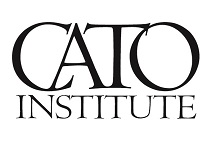The 2014 Cato Institute Surveillance Conference
Never in human history have people been more connected than they are today – nor have they been more thoroughly monitored. Over the past year, the disclosures spurred by former National Security Agency contractor Edward Snowden have drawn public attention to the stunning surveillance capabilities of the American intelligence community, and the unprecedented volume of data they collect from hundreds of millions of people around the world.
But the growth of government surveillance is by no means restricted to spies: Even ordinary law enforcement agencies increasingly employ sophisticated tracking technologies, from face recognition software to “Stingray” devices that can locate suspects by sniffing out their cellular phone signals. Are these tools a vital weapon against criminals and terrorists – or a threat to privacy and freedom? How should these tracking technologies be regulated by the Fourth Amendment and federal law? Can we reconcile the secrecy that spying demands with the transparency that democratic accountability requires?
This inaugural Cato Institute Surveillance Conference, on 12 December, at the Cato Institute in Washington, USA, will explore these questions, guided by a diverse array of experts: top journalists and privacy advocates; lawyers and technologists; intelligence officials … and those who’ve been targets of surveillance. And for the more practically minded, a special Crypto Reception, following the Conference, will teach attendees how to use privacy-enhancing technologies to secure their own communications.
Featuring Julian Sanchez, Senior Fellow, Cato Institute; Charlie Savage, Washington Correspondent, New York Times; Siobhan Gorman, Wall Street Journal; Robert S. Litt, General Counsel, Office of the Director of National Intelligence; John Napier Tye, Former Section Chief for Internet Freedom, State Department; Marcy Wheeler, Writer, Emptywheel.net; Laura Donohue, Director, Georgetown University Center on National Security & the Law; Alex Joel, Civil Liberties Officer, Office of the Director of National Intelligence; Jack Gillum, Associated Press; Faisal Gill, Attorney & Surveillance Target; Orin Kerr, Professor of Law, George Washington University; Harley Geiger, Advocacy Director and Senior Counsel, Center for Democracy & Technology; Chris Soghoian, Principal Technologist and Senior Policy Analyst, American Civil Liberties Union; Katherine Hawkins, National Security Fellow, Open the Government; Steve Aftergood, Director, Project on Government Secrecy, Federation of American Scientists; Sharon Bradford Franklin, Executive Director, Privacy and Civil Liberties Oversight Board; Elizabeth “Liza” Goitein, Co-Director, Liberty and National Security Program, Brennan Center for Justice; Matthew Green, Research Professor of Computer Science, Johns Hopkins University; Kurt Opsahl, Deputy General Counsel, Electronic Frontier Foundation; Julia Angwin, ProPublica; author of Dragnet Nation; J. Kirk Wiebe, Former Senior Analyst, National Security Agency; Ellen Nakashima, Washington Post; Lara M. Flint, Chief Counsel for National Security, Senate Judiciary Committee; Richard Salgado, Legal Director, Law Enforcement and Information Security, Google; Eric E. Schmidt, Executive Chairman, Google; Craig Timberg, National Technology Reporter, Washington Post; Lindsay Beck, Program Manager, Open Technology Fund; Griffin Boyce, Hacker & Security Researcher; Joe Hall, Chief Technologist, Center for Democracy and Technology; Karen Reilly, Development Director, Tor Project.
A detailed programme is available here.
If you can’t make it to the Cato Institute, watch this event live online at www.cato.org/live and follow the conversation on Twitter using #CatoSpyCon.
For more details, visit the event webpage.
|full_html

